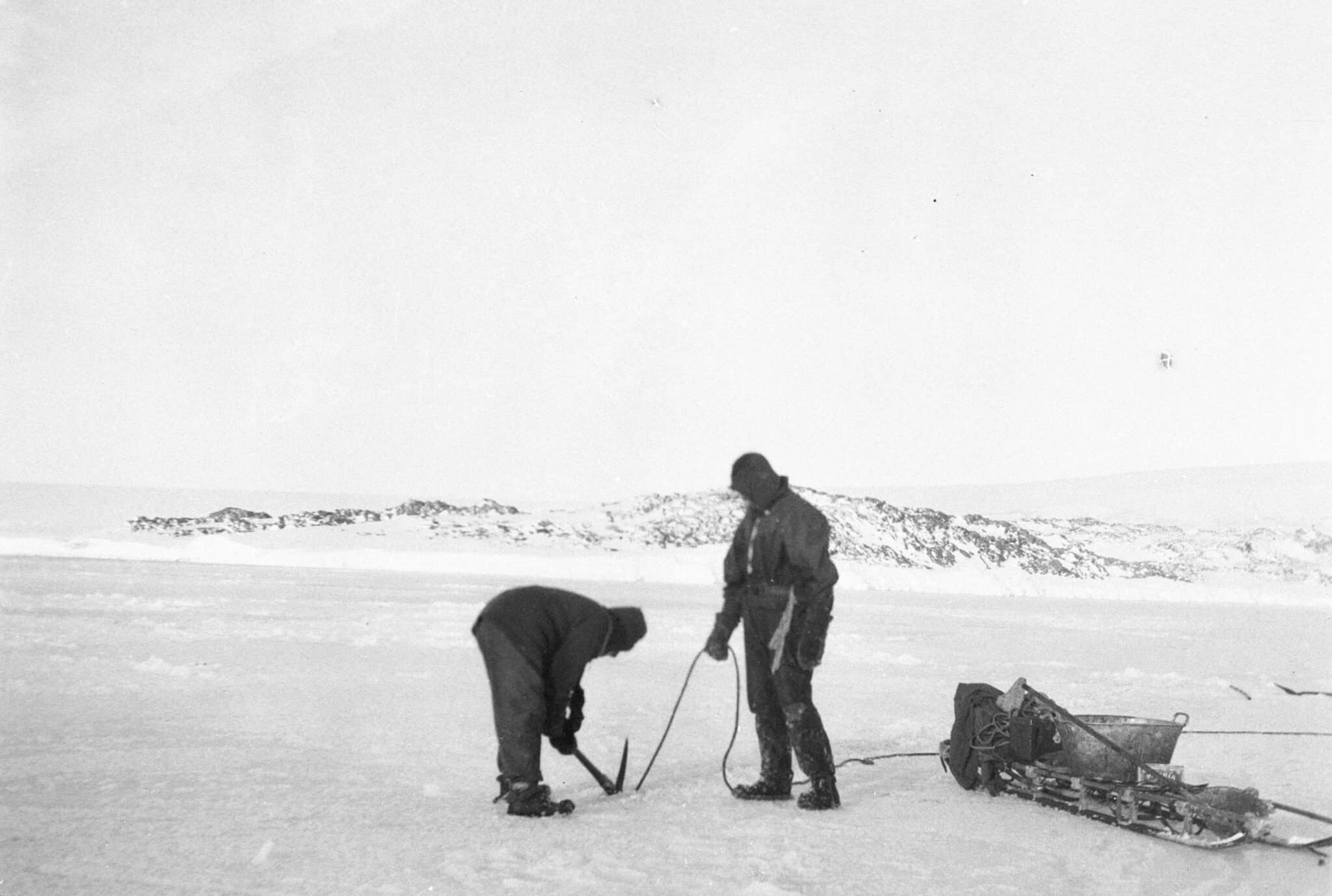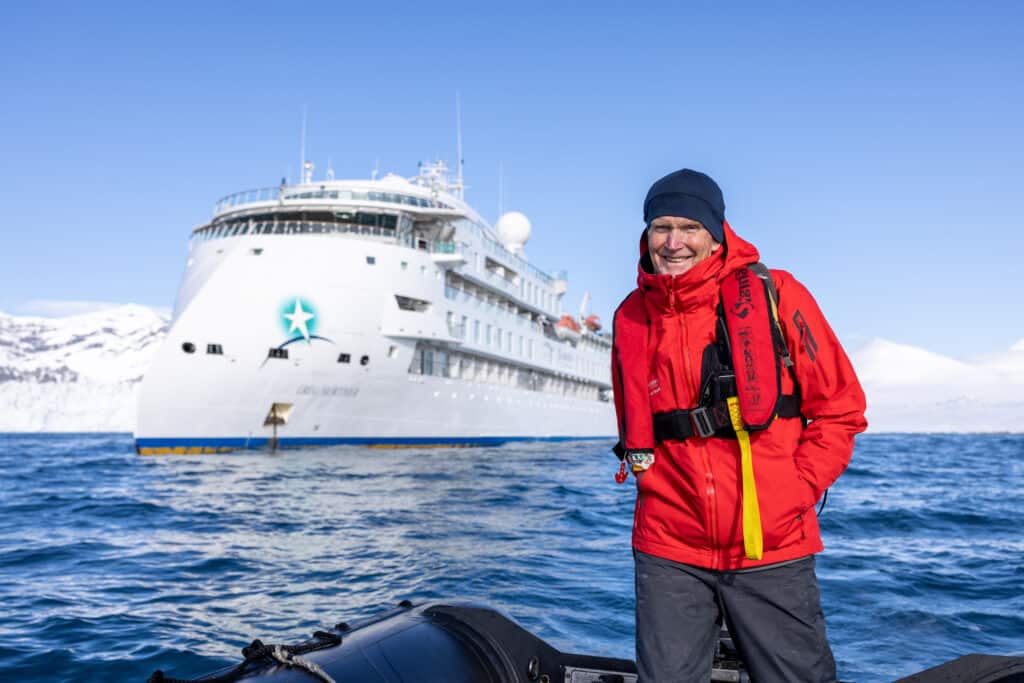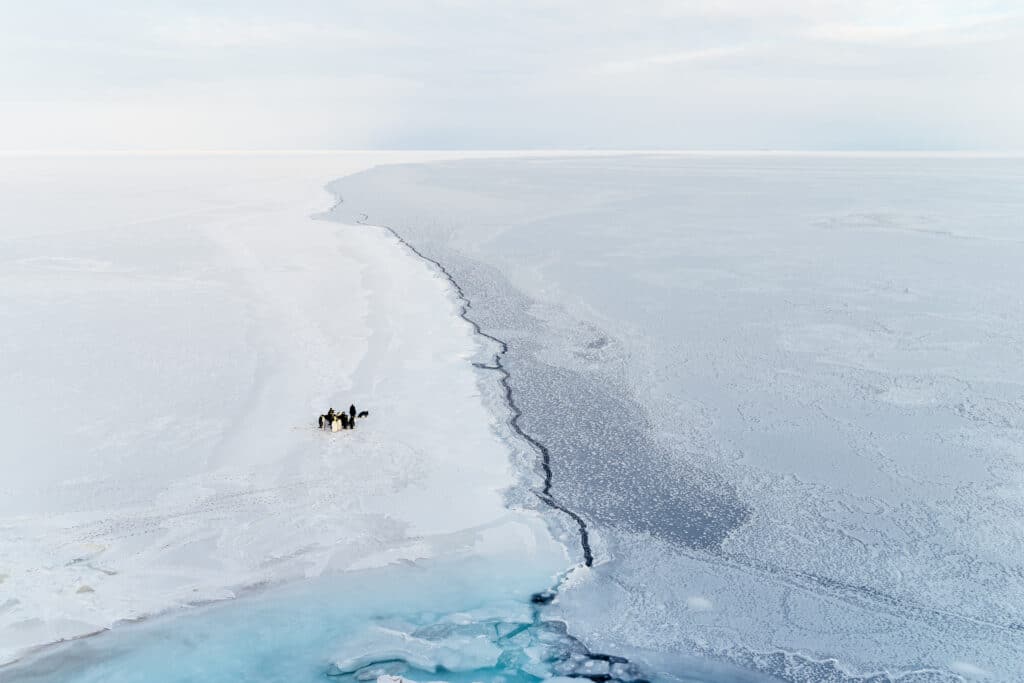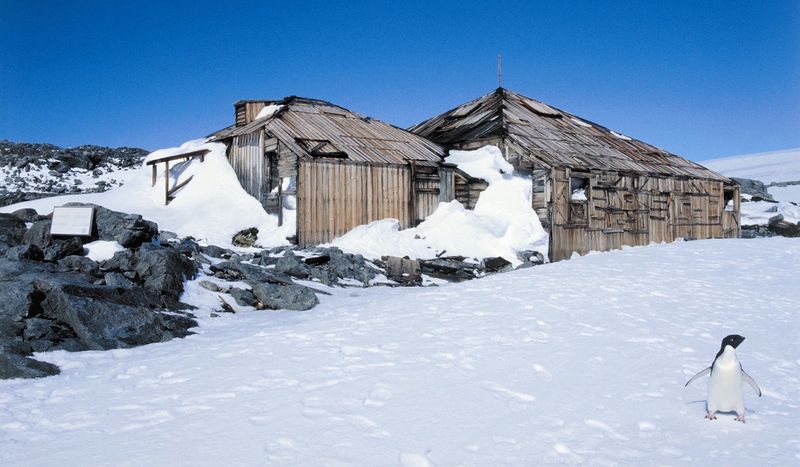At Aurora Expeditions, we firmly believe that the ultimate honour to bestow upon someone is to name a ship after them. Following in the footsteps of the Greg Mortimer, named after mountaineer, explorer and Aurora Expeditions co-founder Greg Mortimer, and the Sylvia Earle, named after marine biologist and oceanographer Dr. Sylvia Earle, the Douglas Mawson was named after one of Australia’s most famous explorers and geologists.
Equipped with the latest technology and sustainability features, including the latest Ulstein X-BOW®, the Douglas Mawson promises unforgettable journeys to some of the most remote and pristine destinations on the planet. But who is the man behind our newest small ship? Buckle in as we unveil Mawson’s harrowing tale of survival on an Antarctic expedition during the heroic age of Antarctic exploration, which continues to inspire generations of explorers and adventurers.

Did you know?
Sir Douglas Mawson has always had a special place in our hearts. In fact, he has been with us since our inception over 33 years ago! A passionate adventurer himself, Greg Mortimer had always felt drawn to Mawson’s extraordinary feats and unwavering determination. His legacy, spirit of adventure, thirst for knowledge and his unyielding resilience served as a constant source of inspiration – so much so that, when he was deciding on a name for the company, he gave Mawson the ultimate nod by naming the company after his ship, the Aurora.

I did a little gasp when the new ship name was announced. Could we really use the prestigious name of Douglas Mawson?
Mawson's style is embedded in Aurora Expeditions, so this is both the closing of a circle 34 years in the making and the opening of a new chapter.
It is very poetic because the Mawsons legacy embodies journeying to the edges of the known world and of making well-calculated but bold moves with purpose. Long may we do so on every voyage.Greg Mortimer
Mawson’s tale of triumph and tragedy
Sir Douglas Mawson’s story is one of both triumph and tragedy, marked by his pivotal role in the heroic age of Antarctic exploration. Born in 1882 in Yorkshire, England, Mawson emigrated to Australia as a child and later became one of the nation’s most celebrated polar explorers. His first major expedition was with Sir Ernest Shackleton on the British Antarctic Expedition of 1907-1909, where he distinguished himself as a capable scientist and leader.
However, it was Mawson’s own Antarctic expedition, the Australasian Antarctic Expedition of 1911-1914, that solidified his place in history. Setting sail from Hobart, Tasmania in December 1911, the expedition comprised a team of seasoned explorers, scientists and crew members. Their primary objectives included mapping the coastline, studying wildlife and geological formations, and gathering invaluable data to further our understanding of Antarctica’s unique ecosystem.
Early in the expedition, tragedy struck when one of the expedition’s support teams, led by Belgrave Ninnis, perished in a crevasse accident while exploring the uncharted hinterlands. This loss dealt a devastating blow to the expedition, both emotionally and logistically, as vital supplies and equipment were lost with Ninnis and his sled dogs.
Undeterred by this setback, Mawson and his remaining team pressed on, determined to fulfil their scientific objectives despite the perilous conditions. As they ventured deeper into the white continent, they faced relentless blizzards, bone-chilling temperatures and treacherous terrain.
One of the most infamous chapters of the expedition unfolded during Mawson’s solo journey back to base camp after the tragic death of his companions, Xavier Mertz and Belgrave Ninnis. Forced to traverse hundreds of miles of icy wasteland with limited supplies and equipment, Mawson endured unimaginable hardships as he battled frostbite, hunger and exhaustion.
In a remarkable display of courage and resilience, Mawson persevered, ultimately surviving the ordeal and returning to base camp against all odds. His epic journey, recounted in his memoir The Home of the Blizzard, remains one of the most gripping tales of survival in the annals of Antarctic exploration.
Despite the immense challenges and losses suffered during this expedition, Mawson’s team succeeded in achieving many of their scientific goals. They made significant contributions to our understanding of Antarctica’s geology, biology and climate, laying the groundwork for future expeditions and scientific research in the region.
The legacy of the Australasian Antarctic Expedition endures as a testament to the human spirit’s capacity for endurance, ingenuity and resilience in the face of adversity. Mawson’s courage and determination continue to inspire generations of explorers and adventurers, reminding us of the extraordinary feats that can be accomplished in the pursuit of knowledge and discovery.

Visit Mawson’s Huts in East Antarctica
During Mawson’s Australasian Antarctic Expedition of 1911-1914, a collection of structures were built at Cape Denison in Commonwealth Bay in East Antarctica, which served as the expedition’s main base of operations.
The main hut, known as the ‘Main Base Hut’, was constructed using prefabricated wooden panels and served as living quarters, laboratories and storage space for the expedition members. It provided shelter from the harsh Antarctic conditions and served as a hub for scientific research and exploration activities.
Several smaller huts and outbuildings were constructed nearby – including a magnetic observatory, a wireless hut and a workshop – which played crucial roles in supporting the expedition’s scientific objectives and daily operations.
Today, Mawson’s Huts are recognised as important historical and cultural sites, representing a significant chapter in the history of Antarctic exploration. They offer a fascinating glimpse into the challenges faced by early polar explorers and serve as a reminder of the pioneering spirit and perseverance of those who ventured into the icy wilderness in the pursuit of knowledge and discovery.
Efforts have been made to preserve and conserve Mawson’s Huts for future generations, with ongoing conservation work undertaken by the Mawson’s Huts Foundation. Visiting the huts is a unique opportunity to step back in time and experience firsthand the harsh realities faced by Mawson and his team during their heroic expedition over a century ago.

Be among the first to experience our newest small ship
The Douglas Mawson’s inaugural season will mark Aurora Expeditions’ return to East Antarctica for the first time in 13 years, with new itineraries to include a Mawson’s Antarctica voyage to East Antarctica in honour of the ship’s namesake, departing from Hobart, a semi-circumnavigation of Antarctica, and immersive explorations of the Subantarctic Islands. We’ve handpicked some of our favourite voyages below, or you can see the full range of itineraries onboard the Douglas Mawson here.
Mawson's Antarctica
Polar Expedition
Welcome to Aurora Expeditions’ Mawson’s Antarctica expedition, sailing on the Douglas Mawson!Retrace the historic voyage of Sir Douglas Mawson’s Australasian Antarctic Expedition (AAE) and experience the grandeur of remote East...
24 Days
From USD $28,300.75/pp
Coastal Tasmania: Untamed Wilderness
Discovery Expedition
Revel in the opportunity to tread some of Tasmania’s greatest coastal tracks while you circumnavigate this island state by sea. Land on remote pristine beaches; trek through coastal heath, buttongrass...
11 Days
From USD $8,876.00/pp
Subantarctic Discovery
Polar Expedition
Welcome to Aurora Expeditions’ Subantarctic Discovery expedition. Discover the primordial beauty of the UNESCO World Heritage listed Australian and New Zealand Subantarctic Islands on this in-depth exploration of a most rugged...
15 Days
From USD $13,340.75/pp




